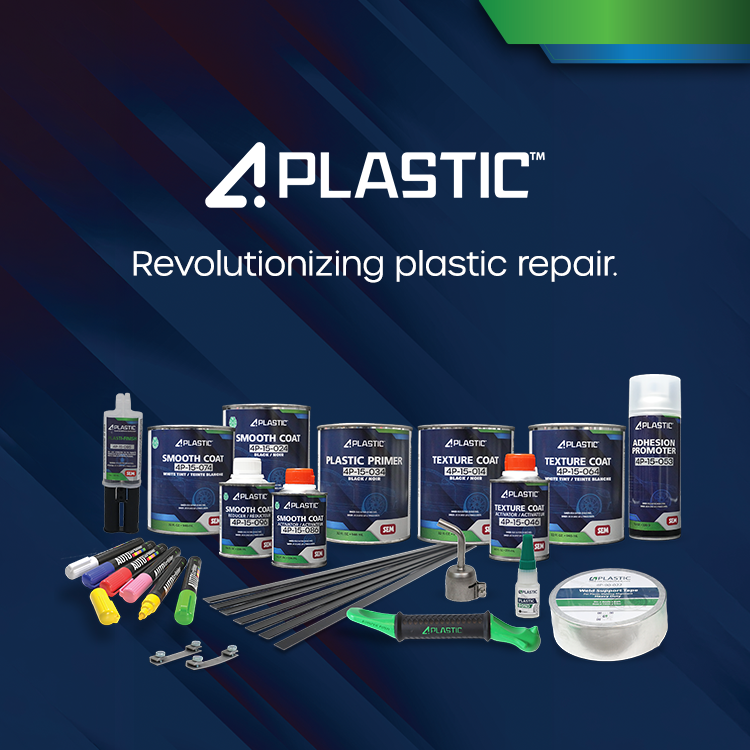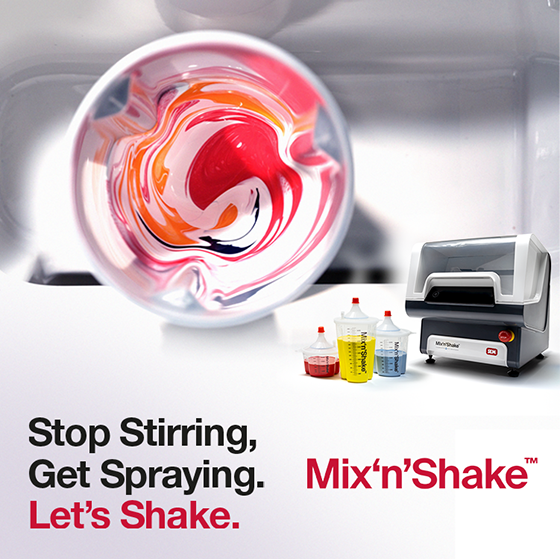Automotive Plastic ID Guide
A quick guide to determine what type of automotive plastic you’re working with.
TPO, PPO, PP, ABS…. there are several plastics used in the automotive industry. It can be difficult to tell the difference between them while preparing to refinish or repair a vehicle. This guide defines the two major categories of plastic, provides ways to identify them, and gives instructions on how to work with each.
Plastic Categories: Thermoset and Thermoplastic
Choosing repair or refinish products for a plastic is determined by whether the plastic melts or not.
Plastics that melt are known as thermoplastics. These plastics are semi-rigid and typically require an adhesion promoter. Plastics that don’t melt are called thermosets. Thermosets are flexible plastics, except SMC, and do not require an adhesion promoter.
3 Ways to Identify Plastic
Most manufacturer’s use thermoplastics, but to be certain of which plastic you have, use any of the following techniques:
- Look at the color of the raw plastic. If it’s black or gray, generally it’s a thermoplastic. If it’s yellow or tan, generally it’s a thermoset.
- Look for the ID mark on the back of the bumper cover (pictured above). There should be a 2-3 letter ID that you can look up. Use the Definitions section below as a reference guide.
- Lightly grind the plastic to see if it smears or powders. If it smears, it’s a thermoplastic. If it powders, it’s a thermoset.
How to Work With Different Plastics
Thermoplastics
If you’re repairing a thermoplastic, most adhesive brands require an adhesion promoter. SEM repair materials and fillers, such as Dual-Mix™ Problem Plastic Repair Material or Dual-Mix™ Multi-Plastic Repair Material, do not.
If you’re refinishing a thermoplastic, clean with a water-based cleaner and a solvent-based cleaner to remove any surface contaminants (i.e. mold release agents, fingerprints, grease, and road grime). Next, use an adhesion promoter to help the surface accept the coating.
SEM Solution: Scuff & Clean, Plastic & Leather Prep, and Plastic Adhesion Promoter
Thermosets
If you’re repairing a thermoset, be sure to use a flexible repair material or filler, since thermosets are more flexible in nature. Because there’s no risk of melting a thermoset, no adhesion promoter is required.
SEM Solution: Dual-Mix™ Multi-Plastic Repair Material or Bumper Bite
If you’re refinishing a thermoset, clean with a water-based cleaner and a solvent-based cleaner to remove any surface contaminants (i.e. mold release agents, fingerprints, grease, and road grime). No adhesion promoter is required.
SEM Solution: Scuff & Clean and Plastic & Leather Prep
Definitions
Thermoplastics:
ABS: Acrylontrile Butadiene Styrene
PP: Polypropylene
PPO: Rigid Polymer Alloy
EPDM: Ethylene Propylene Diene Modified
TPO: Thermoplastic Olefin
TPE: Thermoplastic Elastomer
TEO: Thermoplastic Elastomer Olefin
Thermosets:
PUR: Polyurethane
RIM: Reaction Injection Molded Urethane
TPUR: Thermoplastic Polyurethane
Subscribe to our blog under “Get Notified” to receive new articles straight to your inbox.
Recent Posts




